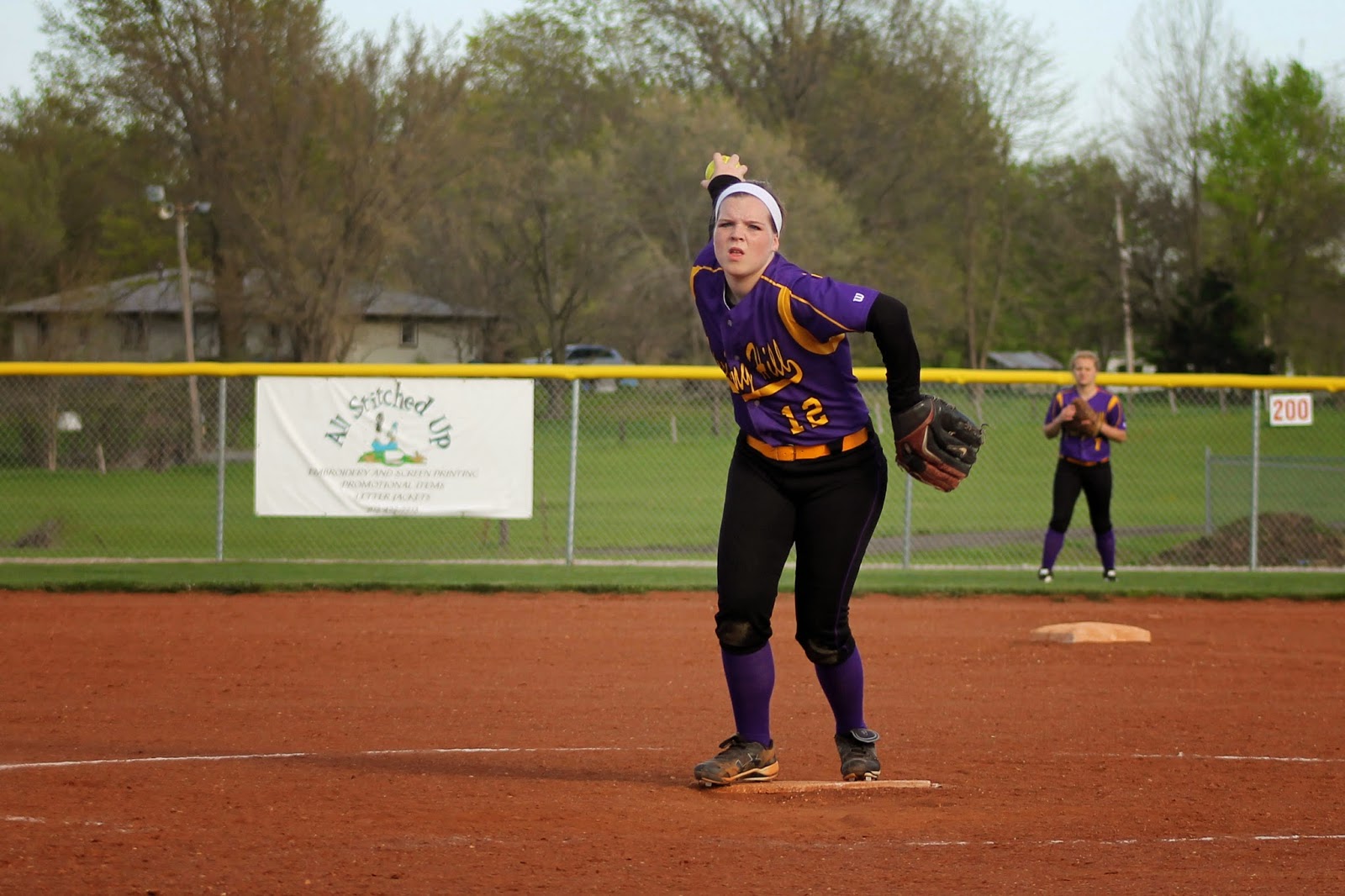I have sat there at her games in awe at what she is able to do. The kid is 5' 6" - not the tallest girl out there by any means. She has faced batters that are 6' and taller. She just goes out there and does her thing. Some days are better than others. I used to chalk up her ability to "Natural Talent." She hated when I would say that - because she practiced softball and worked hard to learn each new pitch and tweak old ones. But I also knew that she threw twice as well as some girls who practiced twice as much. But that isn't the point of this blog entry. I'll come back to that "it" factor that Mary Kate has...and I've learned it is purely psychological.
I'm glad I have softball games to keep my mind occupied as something huge is on the horizon...I will be starting my student teaching internship in less than 2 weeks. Unbelievable! It's here! This journey I have taken (starting in 2008) to get my degree is coming to a close and by the time the sun sets on 2014, I will be a certified educator. When I first went back to school, I had no clue what kind of a degree to get. What I did know was that my work history had proven that when I set my mind to something, worked hard and practiced at it - I had success. I didn't realize it then, but that was "self-efficacy" - one of the core characteristics that is required for learning.
I didn't have self-efficacy as a kid. In fact, I had a great deal of doubt about many of my abilities. Having come from a broken home and being raised by a single mother, things were kind of rough. When I faced failure as a kid, I didn't have resiliency and usually I just walked away. That approach didn't help me with grades, friendships, relationships or work. Things changed when my mother died; I was 21 and she was just 42. It wasn't an immediate change, but I know I grew up a lot that year.
That same year, I started working at Borders Books, Music & Movies as a bookseller. I loved the job and loved the store. An avid reader, music and movie enthusiast, this was my candy store. The culture of the store employees was very laid back and accepting. For beginner booksellers there was an expectation that you show up, were friendly to customers and learned the computer system/layout of the store fairly soon. Once you had the basics down, the trainers would teach you more difficult tasks that tapped into your personal skill sets. I approached each task in the store with gusto and bravery. When I made a mistake, I had caring mentors who corrected me and gave me heaping amounts of praise when I did something right. The managers freely distributed feedback about what kinds of things they liked about our work. Their praise became something I strived for and I began going above and beyond to receive it. Sounds a lot like teaching, huh?
I became a store trainer, then an office manager. The promotions were great and the pay was better. I was getting tangible rewards for my efforts. I don't recall ANY tangible rewards as a kid in school (they didn't do it that way when I was in school). Eventually, I found myself in my dream job as the Activities Coordinator for the Olathe store and soon thereafter, Area Marketing Manager for 7 stores in Kansas and Missouri. All the praise and encouragement...and then the promotions and the money...developed my self-efficacy. The skills that were important at Borders: communication, team work, organization, multi-tasking, customer service, merchandising, graphic design, marketing...these were skills I knew I had. I left Borders in 2002 to stay home with our daughter but my self-efficacy stayed with me and it eventually propelled me back into school.
So, my daughter had some early success as a pitcher. Maybe when she was 9 "Natural Talent" had something to do with her first taste of success, but she practiced as often as she could. The hard work paid off and within her first season as a pitcher, she was racking up numerous strikeouts and helping her team win trophies. Other coaches would come by and compliment her. Those tangible and intangible rewards built up her confidence and self-efficacy to make her who she is today.
Kids need to hear praise and they need tangible rewards for their efforts. They need to tap into their best parts and use their strengths as fuel for each task. It took me a long time to truly understand the concept of self-efficacy and its role in my life. But I think I finally get it. When we identify a student as one who really doubts there abilities...we have to double down on giving them tasks they can be successful in, piling on the praise for when they are successful, and adding new information to their knowledge bank in small chunks. These are the tennants of Special Education but this method is true for all learners. Our learners need success to feel successful. Feelings of success lead to self-efficacy. And self-efficacy leads to perseverance.
When I was 15, I didn't persevere.I couldn't - because I didn't believe in myself. That changed for me...and the change came later in life. I'm glad my experience was what it was though. Because now I truly understand the importance of self-efficacy and how I can foster it in my own classroom.


